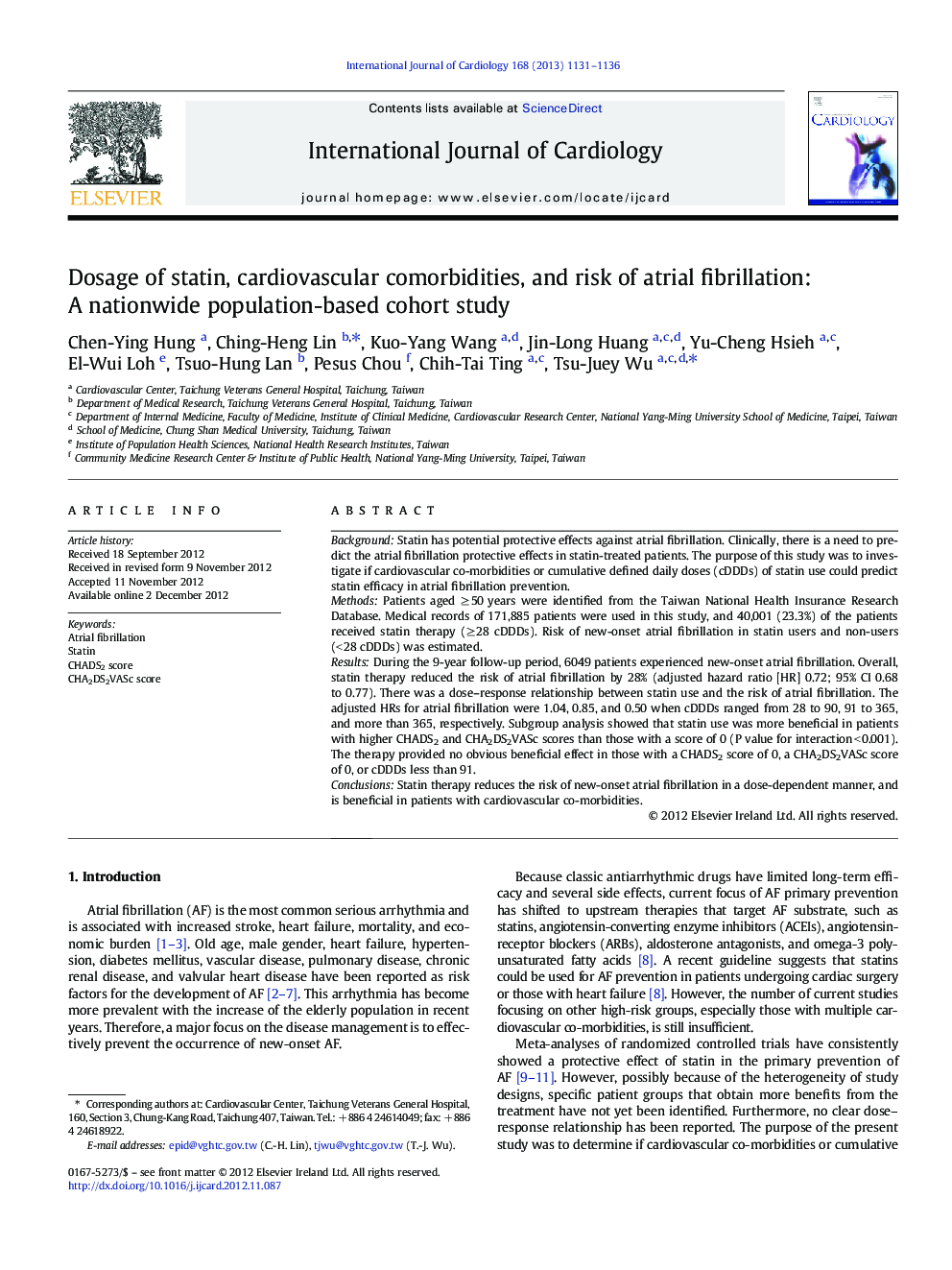| Article ID | Journal | Published Year | Pages | File Type |
|---|---|---|---|---|
| 5974223 | International Journal of Cardiology | 2013 | 6 Pages |
BackgroundStatin has potential protective effects against atrial fibrillation. Clinically, there is a need to predict the atrial fibrillation protective effects in statin-treated patients. The purpose of this study was to investigate if cardiovascular co-morbidities or cumulative defined daily doses (cDDDs) of statin use could predict statin efficacy in atrial fibrillation prevention.MethodsPatients aged â¥Â 50 years were identified from the Taiwan National Health Insurance Research Database. Medical records of 171,885 patients were used in this study, and 40,001 (23.3%) of the patients received statin therapy (â¥Â 28 cDDDs). Risk of new-onset atrial fibrillation in statin users and non-users (< 28 cDDDs) was estimated.ResultsDuring the 9-year follow-up period, 6049 patients experienced new-onset atrial fibrillation. Overall, statin therapy reduced the risk of atrial fibrillation by 28% (adjusted hazard ratio [HR] 0.72; 95% CI 0.68 to 0.77). There was a dose-response relationship between statin use and the risk of atrial fibrillation. The adjusted HRs for atrial fibrillation were 1.04, 0.85, and 0.50 when cDDDs ranged from 28 to 90, 91 to 365, and more than 365, respectively. Subgroup analysis showed that statin use was more beneficial in patients with higher CHADS2 and CHA2DS2VASc scores than those with a score of 0 (P value for interaction < 0.001). The therapy provided no obvious beneficial effect in those with a CHADS2 score of 0, a CHA2DS2VASc score of 0, or cDDDs less than 91.ConclusionsStatin therapy reduces the risk of new-onset atrial fibrillation in a dose-dependent manner, and is beneficial in patients with cardiovascular co-morbidities.
